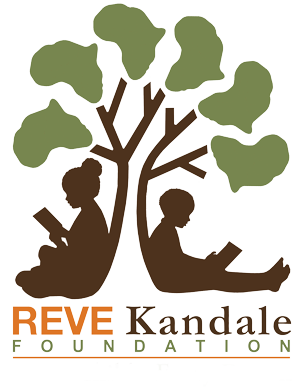Julie and Colette have been talking to members of the Kandale community about having the grinder mills and water in the village. The following excerpts represent the genuine impacts these improvements have made in their lives.
The major impacts of access to water:
“Having water available in the village makes a huge change in how we live. It greatly improves the lives of everyone. We are all impacted by this.”
“It used to be that women would come back from the fields and then have to pound corn and cassava and go down the valley to get water. By the time we had dinner it was 8:00 or 9.00 pm. Now we can have dinner before it gets dark.”
“It is much better that the food can be ready to have dinner earlier, and I am not exhausted.”
“There is no need to go to the source and climb that mountain again. I plan to get all my water here in the village.”
“I do not need water right now. All the containers in my house are already full.”
A woman pointed to her daughter tossing out water she just used to clean some food. “I used to criticize her if she did that since it was wasting water. Now we have more water and do not have to reuse it all the time. We can clean things well.”
The physical challenge of collecting water:
“When you go to the water and bathe, climbing back up the hill carrying water is so hard you are covered in sweat at the top and you feel as though you did not bathe.”
“The children have a hard time getting water and sometimes it is a struggle to get them to go. And you worry about them climbing the steep hill out of the valley.”
“Tell me what rocks you need and I will get them. I am so happy about having water in the village.”
Students carrying stones for the construction of the pump house,
distribution counter and cistern foundation.
The impact on washing clothes:
“When we went to the source to collect water, I would try to bring some laundry to wash also. I had to choose a few pieces to do at a time since it was hard to carry back along with the water. Now I can wash whatever laundry I want in the village and not have to carry it up and down the valley”
The impact on eating:
“There are days that I am just too tired to go down the valley and get water. On those days there is no water to cook and we go to bed hungry.”
“I can stay later in the fields working since the children can go to the grinder and get water so it is at the house when I get home.”
The water source in the valley.
The impact on personal health:
“I used to stress during the day about the prospect of going down the valley to get water. Now I feel calmer since I know I can get water in the village.”
“It is so nice that I do not have to get up at 4:00 or 4:30 in the morning to go get water. Now I can sleep as late as 5:30.”
“Just knowing the water is there in the village gives me peace of mind.”
“When people are ill such as with heat exhaustion and need a lot of water to cool them off it was hard to get enough water fast enough. Now we can care better for people who are sick.”
“Having the water and mill in the village allows me to have more time to wash or just relax a bit. I am not so tired.”
The impact on education:
“The kids do not have to go to the water before school so they can arrive to class on time.”
“If we do not have water in the house and cannot cook the children will go to school hungry.”
The impact on bathing and public hygiene:
“When millet is in season and you are working the fields, you get covered in the tiny bits of millet and you really need to wash after that. Having the water at home is so much better since I can easily bathe and be more comfortable.”
“I used to just give my husband a small amount of water to bathe. Now he has a generous amount to water to wash up well.”
“If people have hernias or other personal issues, which they do not want to share in public, it is difficult.”
“Sometimes people just do not bathe.”


